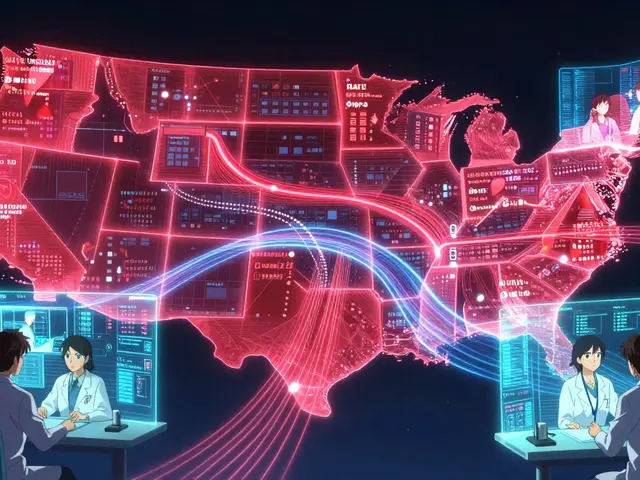Bryan Alexander's latest blog post delves deep into the speculative realm of a cyberpunk dystopia, painting an unsettling yet fascinating picture of what the future of education might look like. Taking cues from the prophetic narratives of cyberpunk authors from the 1980s and 1990s, Alexander sketches a world where extreme global interconnectedness and economic disparities redefine the landscape of higher education—heralding an era of both unprecedented challenges and transformative possibilities.
In this envisioned future, the weakening of nation-states has given rise to the unparalleled influence of corporate entities, reshaping the very fabric of society. These corporate giants, with their vast pools of resources and control over technological innovation, come to dictate not only market trends but also the direction of educational institutions. The paradigm shift towards a corporate-dominated landscape presents a complex interplay between technology, education, politics, and society, painting a bleak image of what's potentially in store.
Higher education institutions find themselves grappling with radical changes. With state funding in sharp decline and tuition fees reaching astronomical levels, universities are compelled to seek alternative financial allies. Partnerships with business entities and support from affluent philanthropists become essential lifelines, steering the academic agenda toward fields that promise lucrative returns. Programmes in business, STEM, and homeland security see a significant boost, overshadowing the arts and humanities, as campus administrators gauge success through business-oriented metrics like potential graduate earnings.
This stark scenario is further complicated by the demographic changes among the student population. Incoming college learners possess not only advanced technological proficiency but also a global mindset. Having been exposed to specialized curricula from a young age, many students by age fifteen show a strong allegiance to multinational corporations, seeing them as integral parts of their identity and future. Moreover, the social networks of these young individuals often span the globe, reflecting a profound shift in the concept of community and belonging.
The implications of such profound changes in higher education are manifold. On one hand, this cyberpunk dystopia prompts us to question the future role of academia in a world where market forces and corporate interests wield significant power. Will education continue to serve as a public good, or will it be transformed into yet another commodity in the global marketplace? On the other hand, the scenario also opens up avenues for innovative educational models that leverage technology and global interconnectedness to foster a new paradigm of learning—one that is adaptable, inclusive, and responsive to the challenges of a rapidly changing world.
However, amidst these reflections, one cannot ignore the potential for political resistance and grassroots movements. In a world where surveillance is rampant and freedoms are compromised, the space for dissent and dialogue may appear limited. Yet history teaches us that adversity often breeds creativity and resilience. Could the very technologies that place us under scrutiny become tools for empowerment and change? As educators, students, and citizens, it's imperative to engage with these questions, exploring how we can collectively navigate towards a future that upholds the values of equity, access, and human flourishing amidst the complexities of a cyberpunk dystopia.






All this corporate schooling is just a front for the global elite control 😒